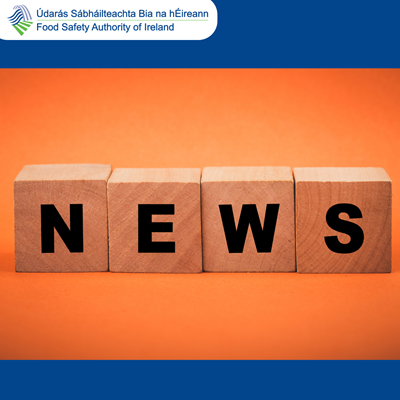Monday, 28 July 2025
The Food Safety Authority of Ireland (FSAI) advised today that a food recall of various branded spinach and mixed leaves products produced by McCormack Family Farms is underway due to the detection of Listeria monocytogenes. To date, there are no cases of listeriosis associated with the spinach and mixed leaves products that are the subject of this recall. Also, there is currently no evidence that this food recall is linked with the listeriosis outbreak related to ready-to-heat meals that is currently under investigation. The FSAI is aware that consumers may be feeling anxious at the news of a second recall involving Listeria monocytogenes. While we urge people to be aware of the risks, and to take precautions when using ready-to-eat foods, they can be assured that there is a robust food control system in place in Ireland, which contributed to the identification of the latest need for a recall. The FSAI advice, as always, is that if anyone has eaten any recalled foods and are feeling well, they do not need to do anything. However, if anyone has eaten any recalled foods and feels unwell, they should seek medical advice.
Listeriosis is an infection caused by the bacterium Listeria monocytogenes. It is usually acquired by eating contaminated food. The Listeria bacteria that can cause illness is killed by cooking food thoroughly (i.e. until piping hot throughout). Serious infection with Listeria monocytogenes is very rare. On average each year, there are between 14 and 22 cases of listeriosis reported in Ireland. Listeria poses a particular risk to elderly people, people with weakened immune systems, and pregnant women. These individuals in particular, should avoid higher risk foods and ensure that they cook food thoroughly until piping hot, and in line with manufacturer’s instructions.
Listeria monocytogenes is widespread in the environment and gets into food via animals and plants. What sets it apart from many other harmful bacteria is its ability to survive and grow in moist cold environments; conditions found in food production factories. Producers of ready-to-eat foods are aware of the need for strict controls to ensure the safe production of food. Food producers actively control their food production environments for Listeria, so that factories and equipment are designed and operated to minimise the incidence of Listeria monocytogenes. This includes minimising water usage; fixing damaged walls, floors and equipment; robust cleaning and disinfection procedures; keeping air clean and restricting the movement of people and equipment in factory areas where food products are produced. Producers of ready-to-eat food must test factory areas and equipment for Listeria on a regular basis to pick up early signs that it may have contaminated their production processes. They also test the finished food to verify that all the Listeria control measures in the factory are working as designed.
The FSAI and the official agencies carry out inspections of food production facilities and review all the control measures in place. This includes examining the testing regimes for Listeria at the factory and also taking official control samples of food and equipment. These official control samples are tested for Listeria monocytogenes in accredited laboratories run by the State. Where Listeria monocytogenes is found in any official control samples, enforcement action is taken to minimise or eliminate the risk to consumers. Precautionary recalls of food due to Listeria monocytogenes can be found initiated by either the food business itself or the authorities and happen from time to time, reflecting the high level of awareness, control and testing that takes place in factory settings. Control measures for Listeria monocytogenes in food ensure risk to consumers is minimised, but the high level of testing also make recalls of food contaminated with Listeria monocytogenes more likely.
-ENDS-
Note to editors:
Protecting yourself against listeriosis is particularly important for pregnant women, infants, older people and those with weakened immune systems. As with other foodborne illnesses, there are several measures that will help to reduce your risk of infection with listeria:
- Always wash your hands before and after preparing food, and before eating.
- Cook food thoroughly, especially meat and meat products, chicken and vegetables, and pre-prepared, ready-to-heat meals, ensuring that they are cooked through to the middle and piping hot (food that requires cooking should reach 75°C for at least 30 seconds).
- Wash salads, fruit and raw vegetables thoroughly before eating, or peel if appropriate.
- Keep uncooked meats separate from vegetables and from cooked and ready-to-eat foods
- Wash hands, knives, and cutting boards after contact with uncooked food
- Make sure that your refrigerator is working correctly (it should be kept between 0°C and 5°C)
- When heating food in a microwave, ensure you follow heating and standing times recommended by the manufacturer
- Keep foods for as short a time as possible and follow storage instructions including 'use by' dates
- Throw away left-over reheated food. Cooked food which is not eaten immediately should be cooled as rapidly as possible and then stored in the refrigerator
For more information, please see:
Listeriosis – protecting yourself and eating safely
Reduce the risk of food poisoning: information for people who are particularly vulnerable

